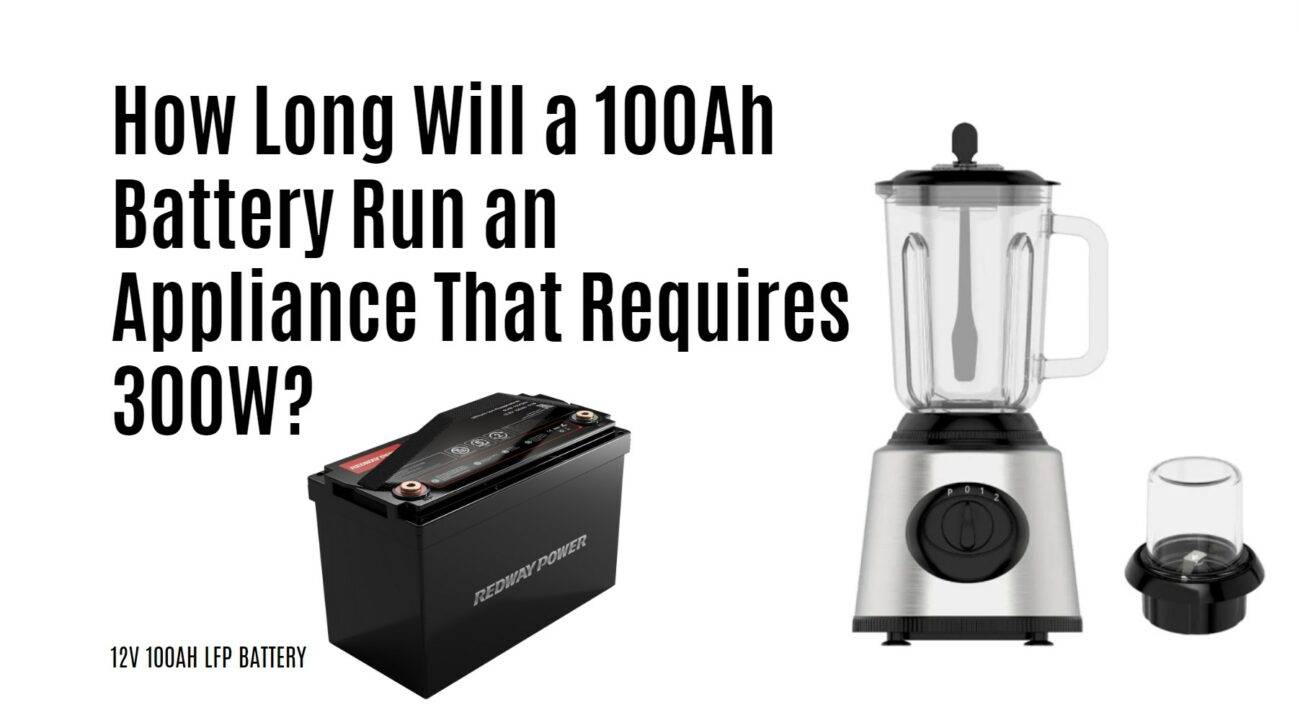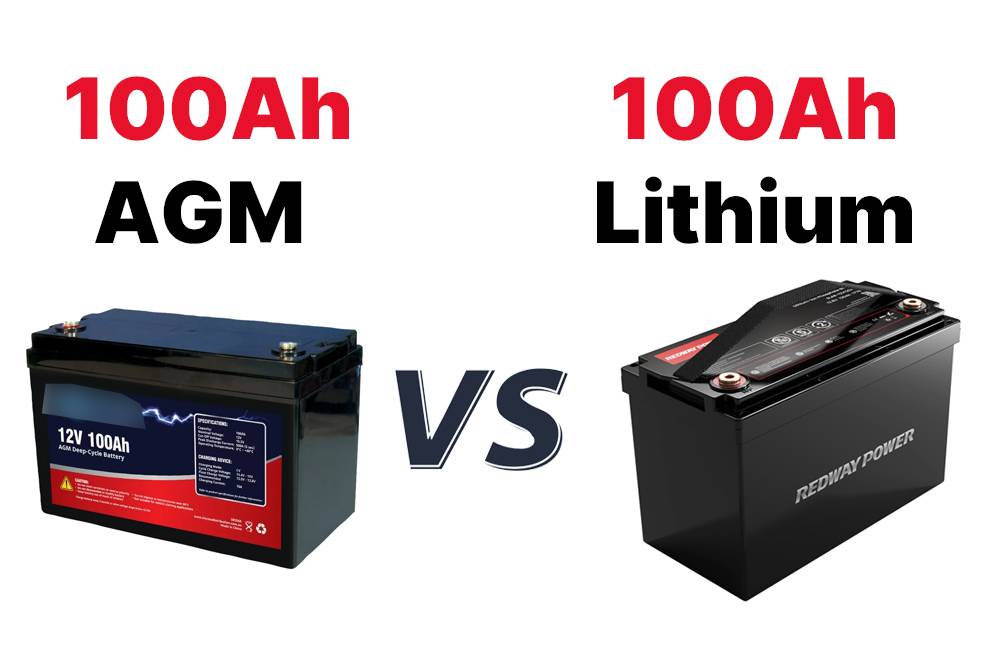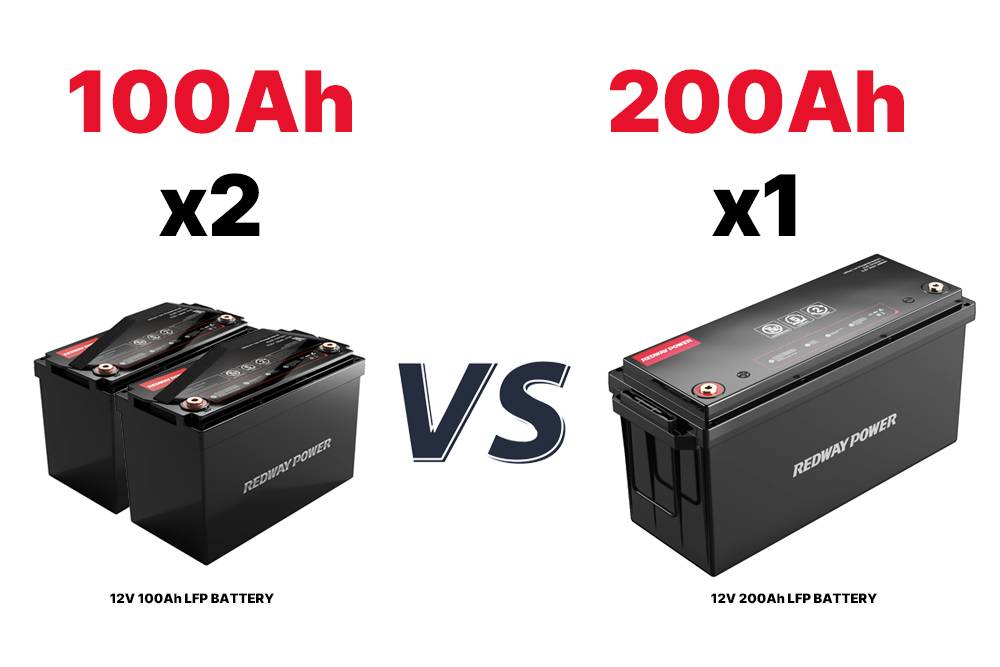The lifespan of a 100Ah lithium battery typically ranges from 2~3 years, depending on usage patterns and conditions. Learn how to maximize the longevity of your battery and ensure optimal performance for your electric vehicles, solar power storage, and other applications.
Factors Affecting Lithium Battery Lifespan
Several factors impact the lifespan of a 100Ah lithium battery:
- Depth of Discharge (DoD)
- Operating Temperature
- Charging and Discharging Rates
- Usage Patterns
Understanding these factors and implementing best practices can help prolong the lifespan of the battery.
Depth of Discharge (DoD) and Cycle Life
The depth of discharge (DoD) refers to the amount of battery capacity used during each charging cycle. Shallower discharge levels, such as keeping the DoD below 80%, can extend the cycle life of the battery. Avoiding deep discharges and excessive DoD can help maximize the overall lifespan of the 100Ah lithium battery.
Operating Temperature and Battery Performance
Extreme temperatures can significantly impact the performance and lifespan of lithium batteries. High temperatures accelerate the degradation process, while very low temperatures can reduce the battery’s capacity and overall efficiency. Maintaining the battery within the recommended temperature range can help preserve its lifespan.
Charging and Discharging Rates
The charging and discharging rates also affect the lifespan of a 100Ah lithium battery. High charging or discharging rates can generate excess heat and put stress on the battery, potentially reducing its longevity. Following the manufacturer’s guidelines for charging and discharging rates can help optimize the battery’s lifespan.
Maximizing Lifespan: Best Practices
To maximize the lifespan of a 100Ah lithium battery, consider implementing the following best practices:
- Avoid deep discharges and keep the depth of discharge (DoD) below 80%.
- Keep the battery within the recommended temperature range.
- Follow the manufacturer’s guidelines for charging and discharging rates.
- Implement proper storage techniques when the battery is not in use.
- Regularly monitor and maintain the battery to ensure optimal performance.
FAQs
Why Choose Lithium Batteries Despite Higher Costs?
Lithium batteries are more efficient than lead-acid batteries, with around 95% efficiency compared to 80%. This higher efficiency allows lithium batteries to charge faster, delivering more energy into the system in less time. Despite the initial investment, the advantages of lithium batteries, such as longer lifespan, lighter weight, and higher energy density, make them a preferred choice despite the higher costs.
-
Higher Efficiency:
Lithium batteries have a higher efficiency compared to lead-acid batteries. This means that more energy is effectively utilized in the lithium system, resulting in faster charging. With around 95% efficiency, lithium batteries outperform lead-acid batteries, which typically have around 80% efficiency.
-
Faster Charging:
Due to their higher efficiency, lithium batteries charge faster than lead-acid batteries. This is advantageous, as it reduces the time required to replenish the battery’s energy. Faster charging means less downtime and more efficient use of the battery-powered device or system.
-
Additional Advantages:
Apart from their efficiency, lithium batteries offer other benefits. They have a longer lifespan, which means they can be used for a longer duration before needing replacement. Additionally, lithium batteries are lighter in weight, making them more portable and suitable for various applications. Their higher energy density allows for more power storage in a compact size, providing enhanced performance.
How Do Lithium Batteries Compare in Energy and Charging?
Lithium batteries outperform other rechargeable batteries in several aspects. They have higher specific energy, energy density, and energy efficiency. Additionally, lithium batteries have a longer cycle life and calendar life, making them more durable and long-lasting. These superior characteristics contribute to their widespread use in various applications.
-
Higher Specific Energy:
Lithium batteries have a higher specific energy, meaning they can store more energy per unit mass. This allows them to provide longer-lasting power while keeping the battery size and weight relatively small.
-
Greater Energy Density:
Lithium batteries also have a higher energy density, which means they can store more energy per unit volume. This enables them to pack more power into a compact size, making them ideal for portable devices and applications with limited space.
-
Improved Energy Efficiency:
Lithium batteries exhibit higher energy efficiency during charging and discharging processes. They can convert a larger percentage of the input energy into usable output energy, resulting in less energy loss and more efficient operation.
-
Longer Cycle Life:
Lithium batteries have a longer cycle life, meaning they can endure a greater number of charge and discharge cycles before their capacity significantly degrades. This makes them more durable and cost-effective in the long run.
-
Extended Calendar Life:
In addition to their cycle life, lithium batteries also have a longer calendar life. This means they can retain their capacity even when not in use for extended periods. Their performance remains stable, making them suitable for applications that require occasional use or storage.
How Long Do Lithium Batteries Last Compared to Others?
Lithium batteries have the longest lifespan among deep-cycle batteries. Many lithium batteries can last between 3,000 and 5,000 partial cycles, which refer to draining and recharging the battery. In comparison, lead-acid batteries typically provide 500 to 1,000 partial cycles. The longer lifespan of lithium batteries makes them a reliable and durable choice for various applications.
-
Longer Lifespan:
Lithium batteries currently have the longest lifespan among deep-cycle batteries. They can last between 3,000 and 5,000 partial cycles. Partial cycles refer to draining the battery and then recharging it. This means that lithium batteries can undergo a significantly higher number of charge and discharge cycles before their capacity significantly degrades.
-
Comparison with Lead-Acid Batteries:
In comparison, lead-acid batteries typically provide 500 to 1,000 partial cycles. This means that lithium batteries have a much longer lifespan and can withstand more cycles of use. This extended lifespan makes lithium batteries a reliable and durable choice for various applications.
More FAQs
- How long does a 100Ah lithium battery last?
- The lifespan of a 100Ah lithium battery typically ranges from 2 to 3 years, depending on usage patterns and conditions.
- What factors affect the lifespan of a lithium battery?
- The lifespan of a lithium battery is influenced by factors such as the depth of discharge (DoD), operating temperature, charging and discharging rates, and overall usage patterns.
- How can I maximize the lifespan of a 100Ah lithium battery?
- To maximize the lifespan of a 100Ah lithium battery, it is recommended to avoid deep discharges, keep the battery within the recommended temperature range, follow the manufacturer’s guidelines for charging and discharging rates, and regularly monitor and maintain the battery. Learn more: How to Convert Cold Cranking Amps (CCA) to Amp Hours (Ah)













